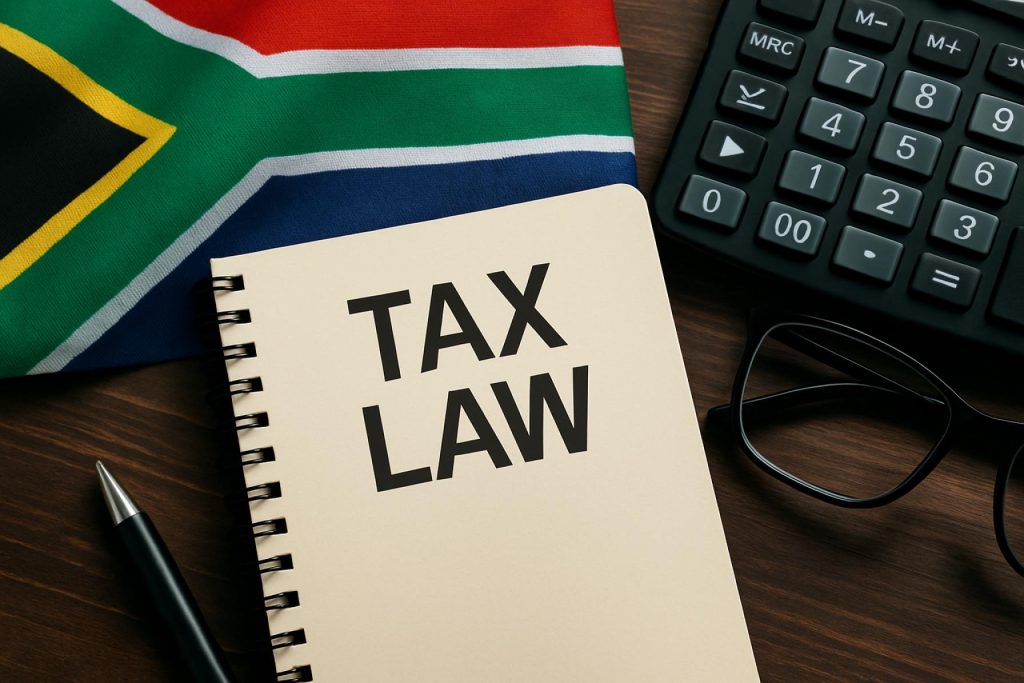
Table of Contents
- Executive Summary: Key Tax Law Updates for 2025
- Overview of South Africa’s Tax System and Regulatory Bodies
- Major Tax Law Changes in 2025: What’s New?
- Personal Income Tax: Bracket Adjustments and Deductions
- Corporate Tax: New Rules, Rates, and Incentives
- VAT, Customs, and Indirect Tax Changes
- Compliance Requirements: Audits, Filing, and Penalties
- Critical Statistics: Revenue, Compliance, and Enforcement (Source: sars.gov.za)
- Future Outlook: 2026–2030 Tax Policy Trends and Predictions
- Expert Guidance: Preparing for Tax Law Reforms and Staying Compliant
- Sources & References
Executive Summary: Key Tax Law Updates for 2025
South Africa’s tax law landscape in 2025 is marked by ongoing reforms aimed at enhancing revenue collection, improving tax compliance, and responding to both domestic fiscal pressures and global economic trends. The South African Revenue Service (SARS) continues to strengthen its enforcement mechanisms, while legislative adjustments are being made to modernize tax policy and address socio-economic challenges. This executive summary outlines the most significant tax law updates, compliance trends, and outlook for 2025 and the near future.
- Legislative Changes: The 2024/2025 Budget Speech introduced several amendments to the Income Tax Act, Value-Added Tax Act, and Customs and Excise Act. Notably, there were modest adjustments to personal income tax brackets to account for inflation, while the corporate income tax rate remains at 27%. The focus remains on broadening the tax base rather than increasing rates. Amendments to anti-avoidance provisions and transfer pricing regulations have also been proposed to align South Africa with global tax standards (National Treasury).
- Tax Compliance and Enforcement: SARS has intensified compliance initiatives, leveraging advanced data analytics and third-party information to detect non-compliance. The Voluntary Disclosure Programme (VDP) remains in place, but scrutiny has increased, particularly regarding offshore assets and international transactions. SARS has also automated several processes, reducing turnaround times for audits and refunds (South African Revenue Service).
- Key Statistics: For the 2023/2024 fiscal year, total tax revenue collections reached R1.73 trillion, exceeding projections and marking a 6.1% year-on-year increase. VAT contributed approximately 26% of overall tax revenue, followed by personal income tax at 39% and corporate income tax at 16% (South African Revenue Service). These figures underscore a gradual recovery in economic activity and enhanced compliance.
- International Tax Developments: South Africa continues to participate in the OECD/G20 Inclusive Framework on Base Erosion and Profit Shifting (BEPS). Legislative reforms are expected in 2025 to introduce the global minimum tax regime (Pillar Two), impacting multinational groups operating in South Africa (National Treasury).
- Outlook: The medium-term outlook anticipates further digitalization of tax administration, expansion of the tax base, and increased scrutiny of high-net-worth individuals and cross-border transactions. While tax rates are projected to remain stable, compliance obligations will intensify, necessitating proactive adaptation by taxpayers.
In summary, 2025 presents a dynamic tax environment in South Africa, characterized by greater enforcement, incremental legislative reform, and alignment with international standards, positioning the country for fiscal stability and sustainable growth.
Overview of South Africa’s Tax System and Regulatory Bodies
South Africa operates a residence-based tax system, under which residents are taxed on their worldwide income, while non-residents are taxed only on income sourced within the country. The principal legislation governing tax in South Africa is the Income Tax Act No. 58 of 1962, complemented by the Tax Administration Act No. 28 of 2011 and a range of other statutes addressing value-added tax (VAT), customs, excise, and other specific levies. The tax year for individuals runs from 1 March to the end of February the following year.
The primary authority responsible for tax collection and enforcement is the South African Revenue Service (SARS). SARS operates under the oversight of the National Treasury, which is responsible for formulating fiscal policy and drafting tax-related legislation. Additionally, the Department of Justice and Constitutional Development and the courts play a crucial role in adjudicating tax disputes and interpreting legislation.
Key features of the tax system include:
- Personal Income Tax: Progressive rates ranging from 18% to 45% for individuals, with annual adjustments for inflation and fiscal policy changes. For the 2024/2025 tax year, the tax-free threshold has been set at R95,750 for individuals under 65 (South African Revenue Service).
- Corporate Income Tax: The headline corporate tax rate was reduced to 27% from 1 April 2023 for years of assessment ending on or after this date, a move aimed at improving competitiveness (National Treasury).
- Value-Added Tax (VAT): Standard rate remains at 15%, applicable to most goods and services, with exemptions for basic foodstuffs and certain exports.
- Capital Gains Tax (CGT): Included as part of income tax, with effective rates varying depending on the taxpayer’s status (individual or corporate).
SARS has invested heavily in digital compliance and enforcement tools, with e-filing mandatory for most taxpayers and ongoing efforts to combat tax evasion and broaden the tax base. The agency has also signaled increased scrutiny of high-net-worth individuals and multinational corporations, in line with global trends and recommendations by international bodies.
Looking ahead, South Africa’s tax system is expected to undergo incremental reforms focused on broadening the tax base, enhancing compliance, and aligning with international best practices, particularly in areas such as transfer pricing and the taxation of the digital economy (National Treasury). These reforms are crucial for fiscal sustainability amid ongoing economic pressures and the government’s commitment to inclusive growth.
Major Tax Law Changes in 2025: What’s New?
In 2025, South Africa’s tax law landscape is marked by key legislative changes, compliance updates, and strategic shifts aimed at strengthening revenue collection and adapting to evolving economic conditions. The South African Revenue Service (SARS) and the National Treasury have introduced several amendments affecting both individuals and corporate taxpayers, reflecting the government’s ongoing efforts to address fiscal pressures and align with international tax trends.
One of the most significant changes for 2025 is the adjustment of personal income tax brackets and rebates to partially account for inflation, although not enough to fully neutralize “bracket creep.” The maximum marginal tax rate for individuals remains at 45% for annual taxable income above R1,817,000, while the primary rebate increases slightly to R17,235. These adjustments are expected to provide modest relief to lower and middle-income earners but are calibrated to sustain revenue growth amid rising government expenditure (National Treasury).
For corporate taxpayers, the headline corporate income tax rate has been maintained at 27%, following the reduction implemented in the previous fiscal cycle. However, important refinements have been made to the rules regarding assessed losses carried forward, with the cap limiting offset to 80% of taxable income per year continuing into 2025. This measure is designed to broaden the tax base and prevent indefinite deferral of tax liabilities (National Treasury).
Value-Added Tax (VAT) remains steady at 15%, but SARS has signaled intensified enforcement against non-compliance, particularly targeting sectors prone to under-declaration and fraudulent refund claims. Enhanced digital systems, including the ongoing expansion of eFiling and AI-driven risk detection, are expected to improve compliance rates and streamline audit processes (South African Revenue Service).
On the international front, South Africa continues to implement measures in line with the OECD’s Base Erosion and Profit Shifting (BEPS) framework. In 2025, stricter transfer pricing documentation requirements and expanded country-by-country reporting obligations for large multinational entities are being enforced, with substantial penalties for non-compliance. These steps are intended to curb aggressive tax avoidance and ensure fair taxation of cross-border profits (South African Revenue Service).
Looking ahead, the focus for the next few years will be on broadening the tax base, enhancing enforcement capability, and leveraging technology to close the tax gap. With government debt levels still elevated—projected at over 75% of GDP—the pressure remains on SARS to meet ambitious collection targets while balancing taxpayer equity (National Treasury).
Personal Income Tax: Bracket Adjustments and Deductions
South Africa’s personal income tax system operates on a progressive scale, with tax brackets and rebates reviewed annually as part of the National Budget. For the 2024/25 tax year, the National Treasury announced that personal income tax brackets and primary, secondary, and tertiary rebates would remain unchanged from the previous year. This decision was taken as part of a broader fiscal consolidation strategy, intended to address persistent revenue shortfalls and rising debt-service costs.
The unchanged brackets for the 2024/25 year are as follows: incomes up to R237,100 are taxed at 18%, with progressive increases up to a maximum rate of 45% for incomes above R1,817,000. The primary rebate remains at R17,235, with additional rebates for individuals aged 65 and over, and 75 and over. The tax threshold (below which no tax is payable) is R95,750 for individuals under 65, R148,217 for those aged 65–74, and R165,689 for those 75 and older. Medical tax credits were also not increased, remaining at R364 per month for the first two beneficiaries and R246 for additional beneficiaries.
Key deductions and allowances continue to include contributions to retirement funds (up to 27.5% of the greater of remuneration or taxable income, capped at R350,000 per annum), medical expenses exceeding certain thresholds, and allowable business expenses for independent contractors and sole proprietors. The South African Revenue Service (SARS) provides detailed guides on allowable deductions and compliance requirements.
Compliance remains a priority, with SARS investing in modernized e-filing systems, data analytics, and automated risk engines to identify non-compliance and under-declarations. The 2023/24 tax season saw over 7 million returns submitted, with compliance rates exceeding 85% among registered individual taxpayers (SARS). Looking ahead, the government has signaled that bracket creep will be used as a revenue-raising measure for at least the next two years, meaning that tax brackets will likely not be adjusted for inflation through 2026. This is expected to increase the tax burden incrementally for most taxpayers as incomes rise and more individuals are pushed into higher brackets.
In summary, personal income tax law in South Africa for 2025 is characterized by bracket stability, unchanged main deductions, and a focus on digital compliance enforcement. The outlook suggests further fiscal tightening, with inflation-driven effective tax increases a likely feature until broader economic recovery allows for more substantial reforms.
Corporate Tax: New Rules, Rates, and Incentives
South Africa’s corporate tax regime continues to evolve to address fiscal pressures, global tax developments, and the need to stimulate investment. As of 2025, several significant changes and ongoing reforms are shaping the landscape for businesses operating in the country.
The most notable recent change is the reduction in the headline corporate income tax (CIT) rate from 28% to 27%, which took effect for years of assessment ending on or after 31 March 2023. This adjustment aims to align South Africa more closely with international norms and to enhance competitiveness for investment. The adjustment is part of a broader strategy to broaden the tax base by limiting certain deductions and incentives, rather than reducing overall tax revenue. For example, the deductibility of assessed losses carried forward is now limited to the higher of R1 million or 80% of taxable income, a measure intended to counterbalance the rate reduction and safeguard fiscal collection targets (South African Revenue Service).
Recent policy initiatives have also focused on tightening anti-avoidance rules and improving compliance. South Africa is actively implementing the OECD’s Base Erosion and Profit Shifting (BEPS) recommendations, particularly those related to transfer pricing, interest limitation rules, and controlled foreign company (CFC) legislation. The South African Revenue Service (SARS) has increased scrutiny of cross-border transactions, requiring detailed transfer pricing documentation and enhanced disclosure in corporate tax returns (South African Revenue Service).
- For 2023/24, corporate income tax contributed approximately R266 billion to national revenue, representing around 16% of total tax receipts (National Treasury).
- Key incentives remain in place for certain sectors, including research and development (R&D), urban development zones, and certain renewable energy projects. However, SARS continues to review the cost-effectiveness of these incentives, with some being phased out or restructured (National Treasury).
Looking ahead, South Africa is expected to further refine its corporate tax framework to bolster revenue while supporting economic growth. Proposed measures include improved digital tax administration, alignment with global minimum tax standards (e.g., Pillar Two of the OECD/G20 Inclusive Framework), and ongoing reviews of tax incentives to ensure value for money and economic impact. Businesses should anticipate continued tightening of compliance requirements and robust enforcement by SARS as South Africa seeks to balance fiscal sustainability with competitiveness in a challenging global environment.
VAT, Customs, and Indirect Tax Changes
South Africa’s tax landscape in 2025 reflects ongoing adaptations in Value-Added Tax (VAT), customs, and indirect tax regulations, shaped by fiscal policy needs, global trade shifts, and compliance modernization. The VAT rate remains at 15%, a level established since 2018; however, the National Treasury and South African Revenue Service (SARS) continue to refine VAT administration for greater efficiency and fraud mitigation.
Notably, the 2024/25 Budget Review signaled intensified VAT compliance measures, with SARS focusing on digitalization of VAT submissions and enhanced risk profiling. This has led to increased audits and the introduction of pre-populated VAT returns for certain taxpayers, aiming to curb under-declaration and prompt timely payment. SARS also emphasizes stricter enforcement against fraudulent refund claims, leveraging advanced data analytics and third-party information sharing (South African Revenue Service).
Customs laws continue to evolve under the Customs Control Act and Customs Duty Act, both undergoing phased implementation to modernize border management. In 2025, SARS is rolling out further modules of its New Customs Acts Programme (NCAP), including digitized cargo reporting, real-time risk assessment, and simplified procedures for compliant traders. These reforms target streamlined clearance, trade facilitation, and improved revenue collection while aligning with international standards set by the World Customs Organization (South African Revenue Service).
Indirect tax regimes, particularly excise duties and environmental levies, have seen targeted increases. For instance, the 2024/25 fiscal year raised excise duties on alcohol and tobacco by 6.7% and 4.9%, respectively. Environmental taxes, such as the carbon tax, are being incrementally increased in line with South Africa’s climate commitments, with annual rises in both carbon tax rates and the scope of liable activities (National Treasury).
Looking ahead, the government is considering further indirect tax reforms, including expanding the VAT base and reviewing zero-rated items. The focus remains on digitalization, broadening compliance coverage, and increasing alignment with global tax standards. Businesses should anticipate continued enhancements in e-filing, stricter import/export regulations, and ongoing adjustments to excise and environmental taxes as part of South Africa’s fiscal consolidation and modernization agenda.
Compliance Requirements: Audits, Filing, and Penalties
South African tax law imposes a comprehensive framework of compliance requirements governing tax audits, filing obligations, and penalties. As of 2025, these are primarily regulated under the Tax Administration Act, 2011 and are administered by the South African Revenue Service (SARS). The requirements apply to both individuals and entities, with specific obligations depending on the nature and size of the taxpayer.
- Filing Deadlines: For the 2025 tax year, individual taxpayers must submit annual income tax returns generally between July and October, although exact dates are announced annually by SARS. Companies must file within 12 months after their financial year end. The filing can be conducted electronically via SARS eFiling, which remains mandatory for most taxpayers South African Revenue Service.
- Record-Keeping: Taxpayers are required to retain supporting documents for at least five years from the date of submission, or longer if an audit, investigation, or dispute is ongoing South African Revenue Service.
- Audits and Reviews: SARS conducts both automated and manual audits based on risk-based selection criteria. In 2024, SARS reported an increase in targeted compliance interventions, particularly focused on high-net-worth individuals and corporate entities. Audits may involve requests for additional documentation or on-site inspections. Notices of audits are issued in writing, and taxpayers must comply within stipulated timeframes South African Revenue Service.
- Penalties and Interest: Non-compliance, including late filing, under-declaration of income, or failure to submit requested documents, can result in administrative penalties. As of 2025, penalties range from R250 to R16,000 per month depending on the taxpayer’s assessed loss or taxable income. Additionally, interest may be levied on outstanding amounts at prescribed rates South African Revenue Service.
Recent years have seen SARS strengthen enforcement, leveraging advanced data analytics to identify discrepancies and automate compliance monitoring. In 2023/24, over 700,000 administrative penalties were imposed for late filings, reflecting a tightening compliance environment. Looking ahead, SARS is expected to further refine its digital systems, increase audit coverage, and enhance taxpayer education to improve voluntary compliance and support fiscal sustainability South African Revenue Service.
Critical Statistics: Revenue, Compliance, and Enforcement (Source: sars.gov.za)
South Africa’s tax law framework—governed primarily by the Income Tax Act, Value-Added Tax Act, and administered by the South African Revenue Service (SARS)—continues to evolve in response to fiscal pressures and compliance challenges. For the 2023/2024 fiscal year, SARS reported a gross tax revenue collection of R2.155 trillion, surpassing the previous year by 6.1%, and reflecting a steady trajectory of growth crucial for funding national priorities. The personal income tax segment remained the largest contributor, accounting for approximately 38.5% of total revenue, followed by value-added tax (VAT) at 26.6% and corporate income tax at 20.6% (South African Revenue Service).
Compliance rates have been an area of continued focus. SARS reported an improvement in filing compliance for the 2023 tax season, with an 80.2% compliance rate among registered taxpayers meeting their obligations on time. However, payment compliance rates saw a more modest increase, highlighting ongoing challenges in collections. Strategic enforcement initiatives have resulted in over R200 billion recovered through targeted audits and investigations in the past year (South African Revenue Service).
- Tax gap estimation: SARS estimates the overall tax gap (the difference between taxes owed and taxes collected) at approximately 5–8% of potential revenue, a figure it aims to reduce through digitalization and data analytics.
- VAT compliance: VAT non-compliance remains a significant concern, prompting recent legislative amendments and increased audit activity in high-risk sectors.
- Enforcement: SARS has intensified criminal investigations, resulting in 1,370 criminal cases registered and 1,090 convictions during the latest fiscal period.
- International cooperation: South Africa remains committed to global standards, exchanging information with over 100 jurisdictions under the Common Reporting Standard to combat tax evasion.
Looking ahead to 2025 and beyond, SARS is prioritizing investment in advanced technology and data-driven compliance measures. The introduction of artificial intelligence tools and automation is expected to further improve detection of non-compliance and streamline taxpayer interactions. Legislative changes are anticipated to enhance penalties for evasion and broaden the tax base, in line with fiscal consolidation goals (South African Revenue Service). The outlook suggests a continued tightening of tax enforcement, with a strong emphasis on transparency, fairness, and fiscal sustainability in the South African tax system.
Future Outlook: 2026–2030 Tax Policy Trends and Predictions
Looking ahead to 2026–2030, South Africa’s tax law is poised for significant evolution, shaped by domestic fiscal pressures, global economic trends, and technological advancements. The National Treasury and the South African Revenue Service (SARS) continue to refine the tax framework to enhance compliance, broaden the tax base, and support economic recovery post-pandemic.
Key policy discussions moving into 2025 highlight intensifying efforts to address base erosion and profit shifting (BEPS), digital economy taxation, and compliance modernization. South Africa remains committed to OECD Inclusive Framework initiatives, including the adoption of a global minimum tax and digital services tax regimes over the next few years. The National Treasury has signaled ongoing reforms to corporate tax, balancing the need for competitiveness with fiscal consolidation.
- Personal and Corporate Taxation: The 2025 Budget Review proposes maintaining current personal income tax brackets, with inflationary adjustments, and a gradual reduction of the corporate income tax rate—currently at 27%—to stimulate investment. These trends are expected to continue, with possible further rate reductions or tax incentives for specific sectors such as renewables and technology (National Treasury).
- Value-Added Tax (VAT): VAT remains a robust revenue source, with the standard rate at 15%. While there is no immediate plan to increase the rate, ongoing parliamentary reviews on zero-rated items and compliance measures could see targeted adjustments to improve revenue collection without increasing the overall burden on consumers (South African Revenue Service).
- Modernization and Enforcement: SARS has intensified digitalization efforts, expanding e-filing and data analytics capabilities to curb evasion and enhance taxpayer service. These advancements are expected to yield improved compliance rates, with SARS reporting a tax compliance rate of 62.7% in 2023/24 and setting a target to exceed 70% by 2030 (South African Revenue Service).
- International Tax & BEPS: South Africa’s participation in global tax reforms is likely to result in new legislation or amendments to address profit shifting, tax avoidance, and the taxation of digital transactions, aligning with OECD recommendations (National Treasury).
The outlook for 2026–2030 therefore anticipates a more sophisticated, technology-driven tax administration, incremental reforms to rates and incentives, and a sustained focus on international cooperation and compliance. Businesses and individuals should prepare for a more transparent and enforcement-oriented tax environment as South Africa aligns with global best practices.
Expert Guidance: Preparing for Tax Law Reforms and Staying Compliant
South Africa’s tax landscape is undergoing notable changes as the government pursues revenue growth, transparency, and compliance amid economic challenges. For businesses and individuals, staying abreast of reforms and enhancing compliance practices is crucial to mitigate risks and leverage opportunities.
Recent and Anticipated Reforms
The 2024/2025 Budget introduced several tax law amendments, including adjustments to personal income tax brackets, increases in excise duties, and efforts to broaden the corporate tax base. Notably, the corporate income tax rate remains at 27%, following the reduction enacted in 2023. However, there is an ongoing review of incentives and anti-avoidance measures, with anticipated tightening around base erosion and profit shifting (BEPS), transfer pricing, and cross-border arrangements. Further refinements to the value-added tax (VAT) system and enhanced digital tax compliance mechanisms are expected in the coming years.
The South African Revenue Service (SARS) continues to modernize its systems and intensify audits, particularly in high-risk sectors and among high-net-worth individuals. SARS’ strategic plan for 2024–2027 emphasizes increasing tax compliance and leveraging data analytics for enforcement, aligning with global standards and the OECD’s recommendations.South African Revenue Service
Compliance Imperatives
With SARS’ increased scrutiny, businesses must prioritize robust tax governance. This includes timely and accurate filing, comprehensive record-keeping, and proactive assessment of new legislative requirements. Employers should note changes in payroll tax administration, such as the expansion of the Employment Tax Incentive (ETI) and the evolving rules on fringe benefits.
- South Africa’s tax-to-GDP ratio was 25.7% in 2022/23, and the government is targeting gradual increases through improved compliance and closing loopholes.National Treasury
- In 2024, SARS collected R1.741 trillion, surpassing previous records and reflecting both expanded enforcement and economic recovery.South African Revenue Service
Expert Recommendations
Taxpayers should undertake regular compliance reviews, invest in digital record-keeping, and seek guidance on complex cross-border transactions. Early engagement with SARS through voluntary disclosure programs can mitigate penalties for historical non-compliance. Companies are advised to update transfer pricing documentation and monitor evolving reporting requirements, especially as South Africa moves towards adopting global minimum tax rules under the OECD’s Pillar Two framework.Department of International Relations and Cooperation
Outlook
Looking ahead to 2025 and beyond, tax law in South Africa will likely see further refinement, with heightened focus on anti-avoidance, digital economy taxation, and environmental levies. Proactive compliance, continuous monitoring of legislative developments, and timely adaptation to regulatory changes will be essential for taxpayers to remain compliant and avoid costly disputes.



